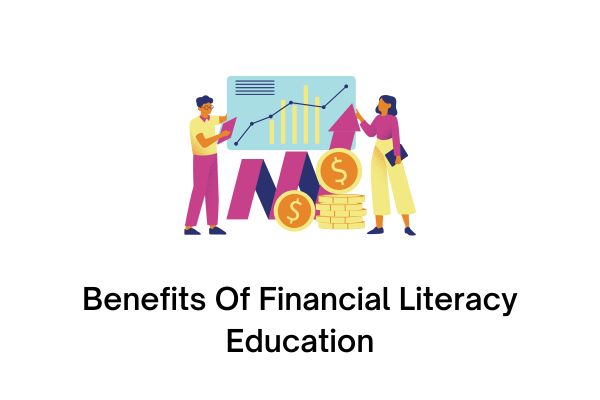What are the benefits of financial literacy education? Financial literacy education is essential in today’s complex and ever-changing economic landscape. It equips individuals with the knowledge and skills needed to make informed decisions about their personal finances, investments, and money management. By understanding the concepts of budgeting, saving, investing, and debt management, individuals are better equipped to secure a stable financial future for themselves and their families. In this article, we will explore the numerous benefits of financial literacy education and why it is crucial for everyone.
1. Empowering Individuals
Financial literacy education empowers individuals by providing them with the necessary tools and knowledge to take control of their financial lives. It helps individuals gain confidence in their ability to manage money, make informed decisions, and plan for the future. By becoming financially literate, individuals are less likely to fall victim to scams, predatory lenders, or make poor financial choices.
2. Improved Financial Decision Making
One of the main benefits of financial literacy education is improved financial decision-making. Individuals who are financially literate are more likely to make informed choices regarding budgeting, saving, investing, and debt management. They are aware of the consequences of their financial actions and can weigh the risks and benefits before making any financial decisions.
3. Better Money Management Skills
Financial literacy education equips individuals with essential money management skills. They learn how to create and maintain a budget, track expenses, and prioritize financial goals. With these skills, individuals can effectively manage their income, reduce unnecessary expenses, and save for important life milestones such as buying a home, paying for education, or planning for retirement.
4. Increased Financial Security
By gaining financial literacy skills, individuals can increase their financial security. They are better equipped to handle unexpected expenses, emergencies, or financial setbacks. Financially literate individuals understand the importance of building an emergency fund, having adequate insurance coverage, and planning for retirement. With increased financial security, individuals can lead a stress-free life and focus on their personal and professional growth.
5. Debt Management
A significant benefit of financial literacy education is improved debt management. Individuals learn how to differentiate between good debt and bad debt, how to reduce interest payments, and how to avoid falling into a debt trap. They understand the long-term consequences of carrying high-interest debt and are motivated to reduce their debt burden by making informed choices.
6. Building Wealth
Financial literacy education helps individuals build wealth over time. By understanding the principles of saving, investing, and compound interest, individuals can make their money work for them. They learn about different investment options, such as stocks, bonds, mutual funds, and real estate, and can make informed decisions about building a diversified investment portfolio. With the right knowledge and skills, individuals can grow their wealth and secure a comfortable financial future.
7. Entrepreneurship Opportunities
Financial literacy education can also provide individuals with the necessary skills to succeed as entrepreneurs. They learn about business finance, budgeting, cash flow management, and financial planning. With this knowledge, individuals can start and manage their businesses more effectively, increasing their chances of success and financial independence.
8. Improved Economic Stability
Financially literate individuals contribute to overall economic stability. They are less likely to default on loans, become a burden on public services, or fall into financial crises. By making sound financial decisions, individuals can positively impact their communities and contribute to a stable and prosperous economy.
9. Future Generations
Financial literacy education is an investment in future generations. By educating young individuals about financial matters from an early age, we can empower them to make smart financial choices throughout their lives. This not only benefits their personal financial well-being but also ensures a financially literate society for years to come.
10. Lifelong Learning
Financial literacy education is not a one-time event; it is a lifelong journey. The financial landscape is constantly evolving, and individuals need to stay updated with the latest trends, regulations, and financial products. By embracing financial literacy education, individuals cultivate a mindset of continuous learning and adaptability, enabling them to navigate the financial world successfully.
Overall, the benefits of financial literacy education are vast and far-reaching. It empowers individuals, improves financial decision-making, enhances money management skills, increases financial security, and opens up opportunities for entrepreneurship and wealth-building. By investing in financial literacy education, individuals can secure a stable and prosperous future for themselves and future generations.
